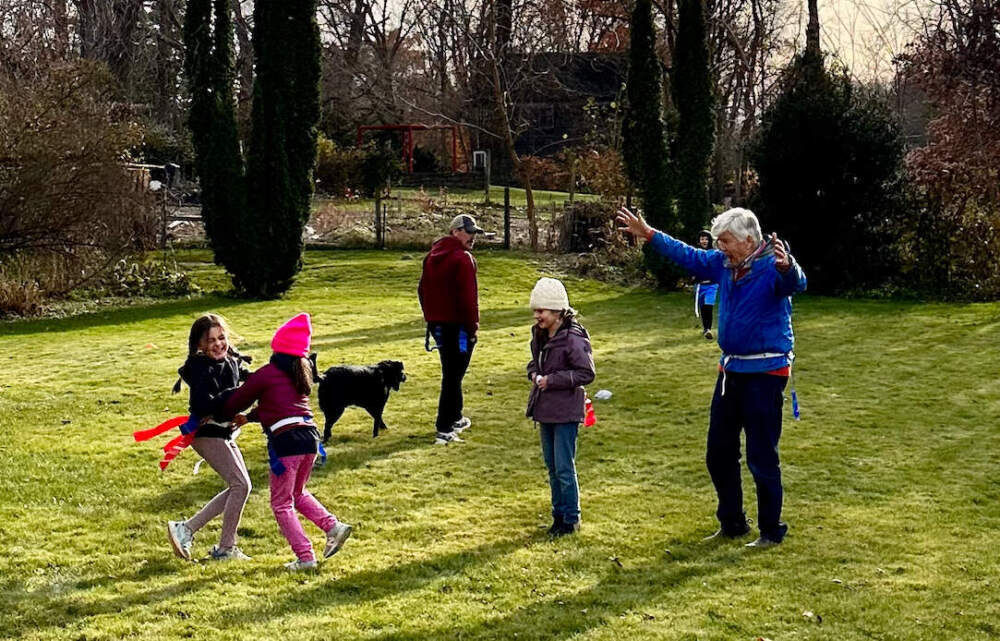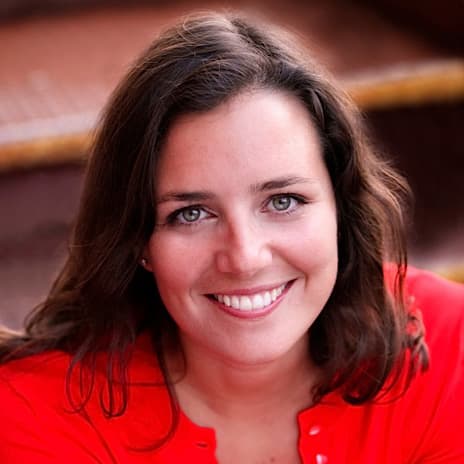Advertisement
Cog's Weekly Ideas Newsletter
Hamsters, puffins and Father's Day

Editor's Note: This is an excerpt from WBUR's Sunday morning opinions and ideas newsletter. If you like what you read and want it in your inbox, sign up here.
This week, I’ve been listening to a new podcast created by Sam Anderson for The New York Times. It’s called “Animal,” and in the six-episode limited series, Anderson spends time with animals – ferrets, puffins, wolves, manatees, bats – trying to glean what lessons they offer inhabitants of the human world.
In the very first episode, “Walnut,” we learn about Mango, Anderson’s daughter’s pet hamster, who escaped from his cage into a hole in the floorboards of their family’s very old home. After a couple of days of frantic searching, Anderson had lost hope and was reluctantly making peace with Mango’s demise, when Walnut, the family dachshund, began staring and barking at a certain section of the wall. Sure enough, Mango the hamster was inside — alive. They lured him out with an open jar of peanut butter.
I promise “Animal” has something to do with the work Cog published this week, which today centers on two beautiful essays just in time for Father’s Day.
Anderson and I are about the same age, and apparently this stage of existence delivers some universal revelations about life’s tenets (beyond the idea that perimenopause may be the root of all that ails you). We all get older, impermanence is constant, everybody and everything dies. At some level we always know these things, but it’s not until mid-life when major loss — for those of us lucky enough not to endure it earlier on — elbows its way in closer to the center of our psyches, and funerals become more frequent than weddings.
And this is also what “Animal” is about. In Anderson’s words, we “know the trajectory [of life] is set – nothing we can do about it.” Some people (including me, on not-good days) rage against the reality, get sad and angle to burn it all down, because what does it matter if we’re all going to die anyway?
But on my better days, and maybe Anderson’s better days, too, we bypass the nihilism for something more like curiosity and wonder. In the case of “Animal,” Anderson seems to be reaching for something profound – the unexplained, the messy, the joyful – things that are common to life on earth in its many forms.
But on my better days, and maybe Anderson’s better days, too, we bypass the nihilism for something more like curiosity and wonder.
And this is definitely what the two fathers who wrote for us this week are grasping for as well. The author Lucas Mann, who you may know as the co-owner of the Riffraff Bookstore and Bar in Providence, Rhode Island, wrote about the decision to buy the bookstore – and thus become an extremely busy small business owner. He explores the transition of parenting a baby to fathering a little kid, and how owning the bookstore changed his relationship with his daughter.
Colin Campbell wrote a very different story. His kids, Ruby and Hart, died when a drunk driver going 90 mph hit the family car in 2019. They were 17 and 14, and he buried them on Father’s Day. Every year he wants to pretend the day doesn’t exist, yet every year he summons the courage not to — because Father’s Day was one of his favorite holidays, “the holiest day of the year.” “I don’t want to wall myself off from life, because those walls don’t actually protect me from the pain anyway. Pain gets through every time,” he writes. “Pain finds the cracks, or makes new cracks, or just goes right over the puny walls I try to build. So I might as well lean into it.”

My dad is still very much alive – he works, walks 10,000 steps most days, roots for the Cubs, can still beat me in HORSE. My husband, Sam, isn’t so fortunate. He lost his dad last year after a long illness, and this is the first year that he’ll be celebrated as a father, without having one of his own. It’s sad and weird; we really miss him. But Sam’s mom is here for a visit. He’s also going to play golf early with a couple of friends today and we’ve been invited to a yummy brunch. I know he’ll be happy to receive handmade cards from our kids, however bittersweet.
In the episode of “Animal” focused on puffins, Anderson travels to a remote island in Iceland where the birds make their burrows on cliffs high above the sea. He loves puffins, but he makes the trip at the exact moment his daughter, Greta, is leaving for college, and he feels uneasy about having such an extraordinary trip while his kid is leaving home.
In the early days of a baby puffling’s life, the mom and dad puffins bring food back to the nest. But eventually, the parents depart, leaving their pufflings alone to make the daring leap off the cliffs, into the open ocean. Sometimes they make it, sometimes they don’t, but this is what always happens. The lesson about letting go – in the many ways life demands – feels especially related to Cog’s work this week.
Whether you are a father, have a father, or are missing your own dad, we’re wishing you some peace today.
